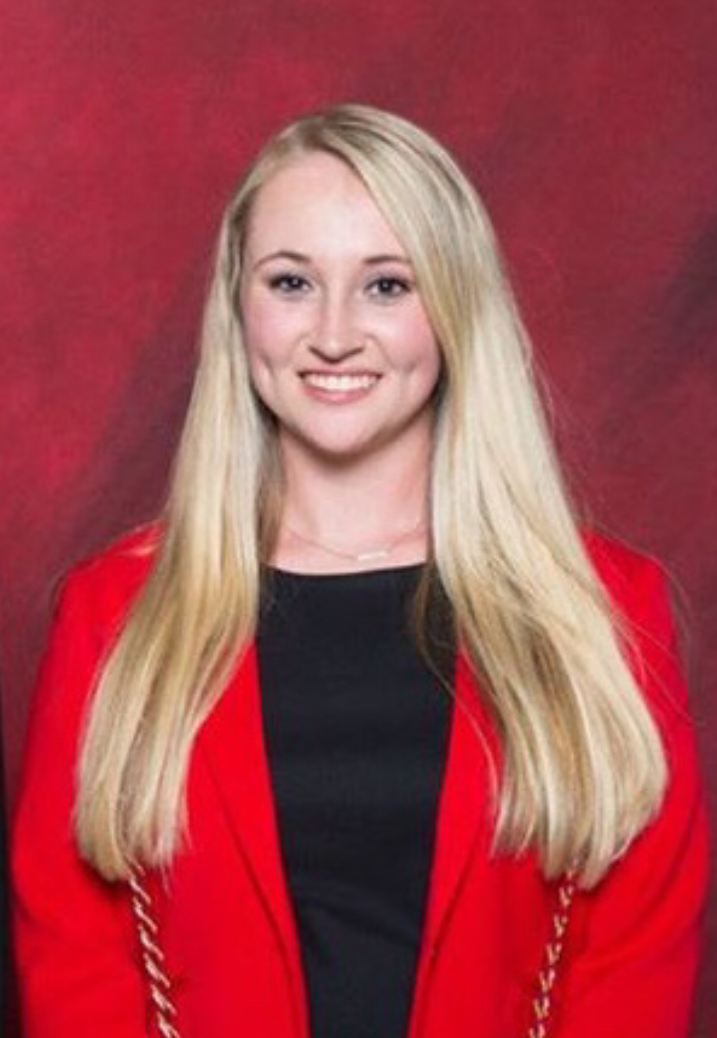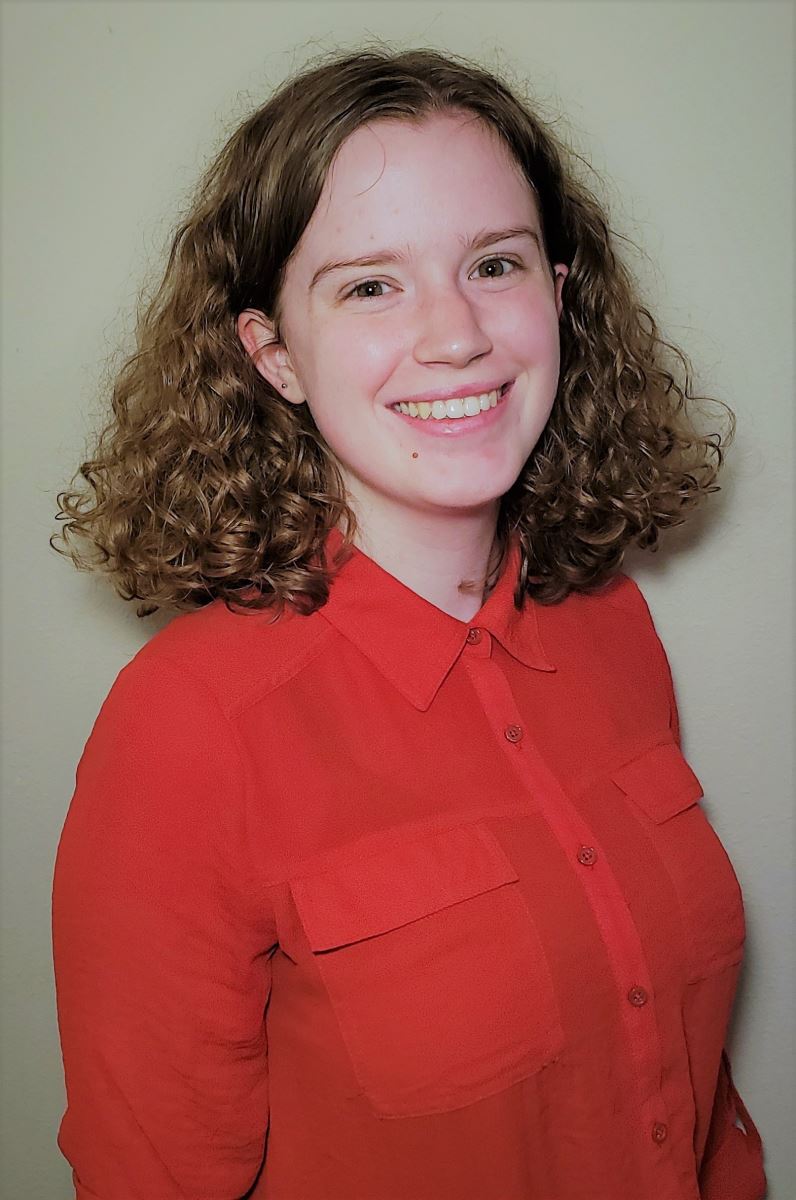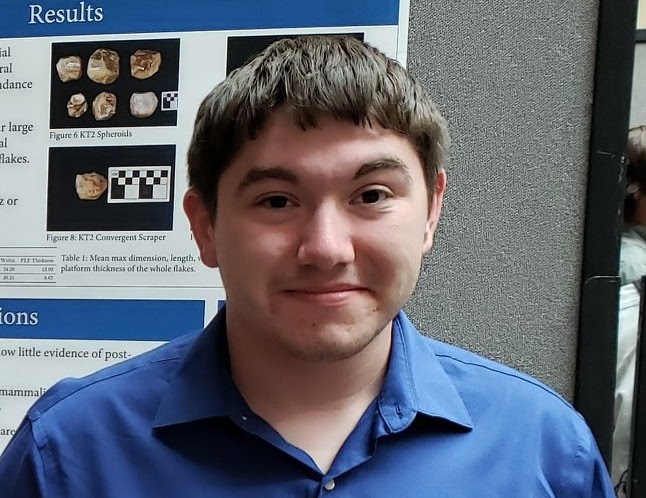Seven U of A students — two undergraduates, three graduate students and two recent alumnae — received National Science Foundation Graduate Research Fellowships this year.
The highly competitive award, considered one of the nation’s top academic honors, is given to students pursuing graduate studies in science, technology, engineering or mathematics fields, and recognizes academic excellence and the potential that each student will make to their field and to society at large.
Each fellowship is worth $34,000 per year and can be renewed for up to three years. Along with the renewable stipend, each student’s institutions will receive $12,000 per year to offset tuition costs, bringing the total amount of funding awarded to these seven students to nearly $1 million.
Since 1952, when the grants were first awarded, 149 U of A students have received this prestigious fellowship.
This year’s NSF Graduate Research Fellows from the U of A are:
- Elizabeth Bullard – biomedical engineering, Colleyville, Texas
- Erin Farmer – economics, math and physics, Fayetteville
- William Kirkpatrick – ecophysiology and avian reproductive behavior, Tellico Plains, Tennessee
- Kathleen McClanahan – biology and chemistry, Maumelle
- Meagan Olsen – chemical engineering, Fayetteville
- Joshua Porter – biological anthropology, East Stroudsburg, Pennsylvania
- Amanda Walls – biomedical engineering, Bloomington, Indiana
In addition to the fellows, three more U of A students or alumni received honorable mentions: Kathryn Judy, a graduate student at the U of A, and Daniel Stahle, now a graduate student at Montana State University, as well as Carson Molder, an undergraduate at the U of A.
“Congratulations to these students for their success with this highly competitive fellowship and to the mentors who have helped prepare them,” said Charles Robinson, provost and vice chancellor for academic and student affairs. “Their interest in research has been supported by their colleges, their departments and their faculty. It is a winning combination as these talented students regularly demonstrate. All of us at the University of Arkansas wish them well as they continue their studies and as they move into careers focused on research and discovery.”
ELIZABETH BULLARD
 Bullard is an honors biomedical engineering senior in the College of Engineering. Under Timothy Muldoon, associate professor of biomedical engineering, her research has focused on quantifying hemodynamics in the submucosa of a mouse model of ulcerative colitis. She plans to pursue a doctoral degree in biomedical engineering.
Bullard is an honors biomedical engineering senior in the College of Engineering. Under Timothy Muldoon, associate professor of biomedical engineering, her research has focused on quantifying hemodynamics in the submucosa of a mouse model of ulcerative colitis. She plans to pursue a doctoral degree in biomedical engineering.
“Dr. Muldoon was supportive of me and my research from the beginning,” Bullard said. “He encouraged me to apply for the GRFP and worked closely with me to make my application the best it could be. I am so grateful for the opportunity to work with a great mentor at Arkansas, and I am honored to receive this award from NSF, which will help support me through my Ph.D.”
ERIN FARMER
 Farmer graduated with honors in 2019 with a Bachelor of Arts in economics and a Bachelor of Science in mathematics and physics. A Bodenhamer Fellow, she conducted research in both physics and economics, working with Arya Gaduh, associate professor of economics; Lanier Nalley, professor of agricultural business and agribusiness; and Salvador Barraza-Lopez, associate professor of physics.
Farmer graduated with honors in 2019 with a Bachelor of Arts in economics and a Bachelor of Science in mathematics and physics. A Bodenhamer Fellow, she conducted research in both physics and economics, working with Arya Gaduh, associate professor of economics; Lanier Nalley, professor of agricultural business and agribusiness; and Salvador Barraza-Lopez, associate professor of physics.
In 2020 she graduated with an Master of Science in local economic development from the London School of Economics and Political Science. She plans to pursue a doctoral degree in plant breeding and genetics at Cornell University, as well as a career as a professor.
“I am honored to have received this award and know that this will be instrumental in my ability to pursue research that I am passionate about as I enter a Ph.D. program this fall,” Farmer said. “I am so grateful to the U of A and to Dr. Arya Gaduh, Dr. Lanier Nalley and Dr. Salvador Barraza-Lopez. Without their guidance, the chance to learn from them and the opportunity to participate in research, I would not have discovered my academic passion, nor would I have received this award!”
WILLIAM KIRKPATRICK
 Kirkpatrick is a doctoral student in ecophysiology and avian reproductive behavior. Previously he received a Bachelor of Science in ecology and evolutionary biology at the University of Tennessee-Knoxville.
Kirkpatrick is a doctoral student in ecophysiology and avian reproductive behavior. Previously he received a Bachelor of Science in ecology and evolutionary biology at the University of Tennessee-Knoxville.
“I am extremely thankful to the National Science Foundation and the University of Arkansas for their support of my research endeavors,” Kirkpatrick said. “The professors and graduate students in the Department of Biological Sciences have been invaluable to my experience so far, but the person who has helped me the most is Dr. Sarah DuRant. Without her continued support in all aspects of my education and research, I would not have been able to begin my career with such a monumental award."
KATHLEEN MCCLANAHAN
 McClanahan graduated with honors in 2019 with a Bachelor of Science in biology and chemistry from the Fulbright College of Arts and Sciences. An Honors College Fellow, she researched under T.K.S. Kumar, professor of biochemistry, working to design and purify recombinant human growth factors. She is currently pursuing a Ph.D. in molecular pathology and immunology at Vanderbilt University, and she plans a career in clinical research.
McClanahan graduated with honors in 2019 with a Bachelor of Science in biology and chemistry from the Fulbright College of Arts and Sciences. An Honors College Fellow, she researched under T.K.S. Kumar, professor of biochemistry, working to design and purify recombinant human growth factors. She is currently pursuing a Ph.D. in molecular pathology and immunology at Vanderbilt University, and she plans a career in clinical research.
“I am very grateful for the training and support I received at the U of A and from my undergraduate research mentor, Dr. Kumar,” McClanahan said. “The scientific foundation I received during my time at the U of A prepared me well for graduate school and to be a competitive applicant for the NSF GRFP. I am very excited about this fellowship and the scientific opportunities it offers going forward.”
MEAGAN OLSEN
 Olsen is an honors chemical engineering senior in the College of Engineering. Through her research under Shannon Servoss, associate professor of chemical engineering, she has investigated the development of peptoid-functionalized gold nanoparticles for use in point-of-care electrochemical sensors to detect viral pathogens.
Olsen is an honors chemical engineering senior in the College of Engineering. Through her research under Shannon Servoss, associate professor of chemical engineering, she has investigated the development of peptoid-functionalized gold nanoparticles for use in point-of-care electrochemical sensors to detect viral pathogens.
Olsen is a James and Susan von Gremp Honors College Fellow, and in 2019 she was named a Barry M. Goldwater Scholar, the nation’s top honor for sophomore and junior STEM majors planning to pursue doctoral studies in their field. She plans to pursue a doctorate in chemical engineering.
“I am excited and honored to have been awarded an NSF Graduate Research Fellowship,” Olsen said. “The fellowship will allow me to tailor my graduate school experience and continue researching topics at the interface of chemical engineering, nanotechnology and biology. I am very grateful for the support and opportunities that Dr. Shannon Servoss and the rest of the University of Arkansas have given me over the past years.”
JOSHUA PORTER
 Porter is pursuing a master’s degree in biological anthropology. Before coming to the U of A, he graduated in 2020 from George Washington University with a Bachelor of Science in biological anthropology. Under Amelia Villaseñor, assistant professor of biological anthropology, his research focuses on identifying cascading ecological changes associated with megafaunal extinctions and human ecosystem engineering through the use of the fossil record and stable isotope ecology. He plans a career as a tenure-track professor.
Porter is pursuing a master’s degree in biological anthropology. Before coming to the U of A, he graduated in 2020 from George Washington University with a Bachelor of Science in biological anthropology. Under Amelia Villaseñor, assistant professor of biological anthropology, his research focuses on identifying cascading ecological changes associated with megafaunal extinctions and human ecosystem engineering through the use of the fossil record and stable isotope ecology. He plans a career as a tenure-track professor.
“Dr. Villaseñor and I are looking forward to using this opportunity to continue exploring the impacts of human-mediated extinction using the fossil record,” Porter said. “We are both extremely grateful for the feedback and support we've received from the anthropology department, Fulbright College and the National Science Foundation.”
AMANDA WALLS
 Walls is pursuing a Ph.D. in biomedical engineering. Before coming to the U of A, she completed a Bachelor of Science in Biomedical Engineering at Harding University. Her research adviser is Kartik Balachandran, associate professor of biomedical engineering, with whom she works to develop a novel microfluidic device that recapitulates respiratory system physiology during viral exposure. She is also the recipient of a Distinguished Doctoral Fellowship, and she plans a career as a faculty member at a primary undergraduate institution.
Walls is pursuing a Ph.D. in biomedical engineering. Before coming to the U of A, she completed a Bachelor of Science in Biomedical Engineering at Harding University. Her research adviser is Kartik Balachandran, associate professor of biomedical engineering, with whom she works to develop a novel microfluidic device that recapitulates respiratory system physiology during viral exposure. She is also the recipient of a Distinguished Doctoral Fellowship, and she plans a career as a faculty member at a primary undergraduate institution.
“It is an honor to be awarded the NSF Graduate Research Fellowship and be recognized as one of the future leaders in STEM,” Walls said. “I am thankful to my undergraduate mentors for encouraging me to pursue a graduate career, and I am thankful to my current adviser, Dr. Balachandran, for supporting my research and providing me with the tools and resources to contribute to advancements in the STEM field.”
U of A students and recent alumni interested in applying for scholarships and fellowships such as the NSF Graduate Research Fellowship should contact the Office of Nationally Competitive Awards at awards@uark.edu or 479-575-3771. More information is available at awards.uark.edu.
About NSF Graduate Research Fellowships: Since 1952, the National Science Foundation has awarded the highly competitive Graduate Research Fellowship to over 50,000 students in the STEM fields. The graduate fellowship program is one of the NSF’s oldest and most highly competitive, with roots in the foundation’s original 1950 charter. Each year, approximately 2,000 Fellows are selected through a rigorous NSF peer-review process. Each grant supports graduate study that leads to a research-based master’s or doctoral degree. NSF Graduate Research Fellows are promising young mathematicians, scientists and engineers who are expected to pursue lifelong careers marked by significant contributions to research, teaching and industrial applications in science, mathematics and engineering.
About the University of Arkansas: As Arkansas' flagship institution, the U of A provides an internationally competitive education in more than 200 academic programs. Founded in 1871, the U of A contributes more than $2.2 billion to Arkansas’ economy through the teaching of new knowledge and skills, entrepreneurship and job development, discovery through research and creative activity while also providing training for professional disciplines. The Carnegie Foundation classifies the U of A among the top 3% of U.S. colleges and universities with the highest level of research activity. U.S. News & World Report ranks the U of A among the top public universities in the nation. See how the U of A works to build a better world at Arkansas Research News.
Topics
- Awards
- Engineering
- Research & Innovation
- Science
- Points of Pride
- Social Sciences
- College of Engineering
- Fulbright College of Arts & Sciences
- Sam M. Walton College of Business
- Honors College
- Department of Anthropology
- Department of Biological Sciences
- Department of Chemistry and Biochemistry
- Department of Mathematical Sciences
- Department of Biomedical Engineering
- Ralph E. Martin Department of Chemical Engineering
- Department of Physics
- Department of Economics
Contacts
Suzanne McCray, vice provost for enrollment
Director of Nationally Competitive Awards
479-575-4883, smccray@uark.edu
